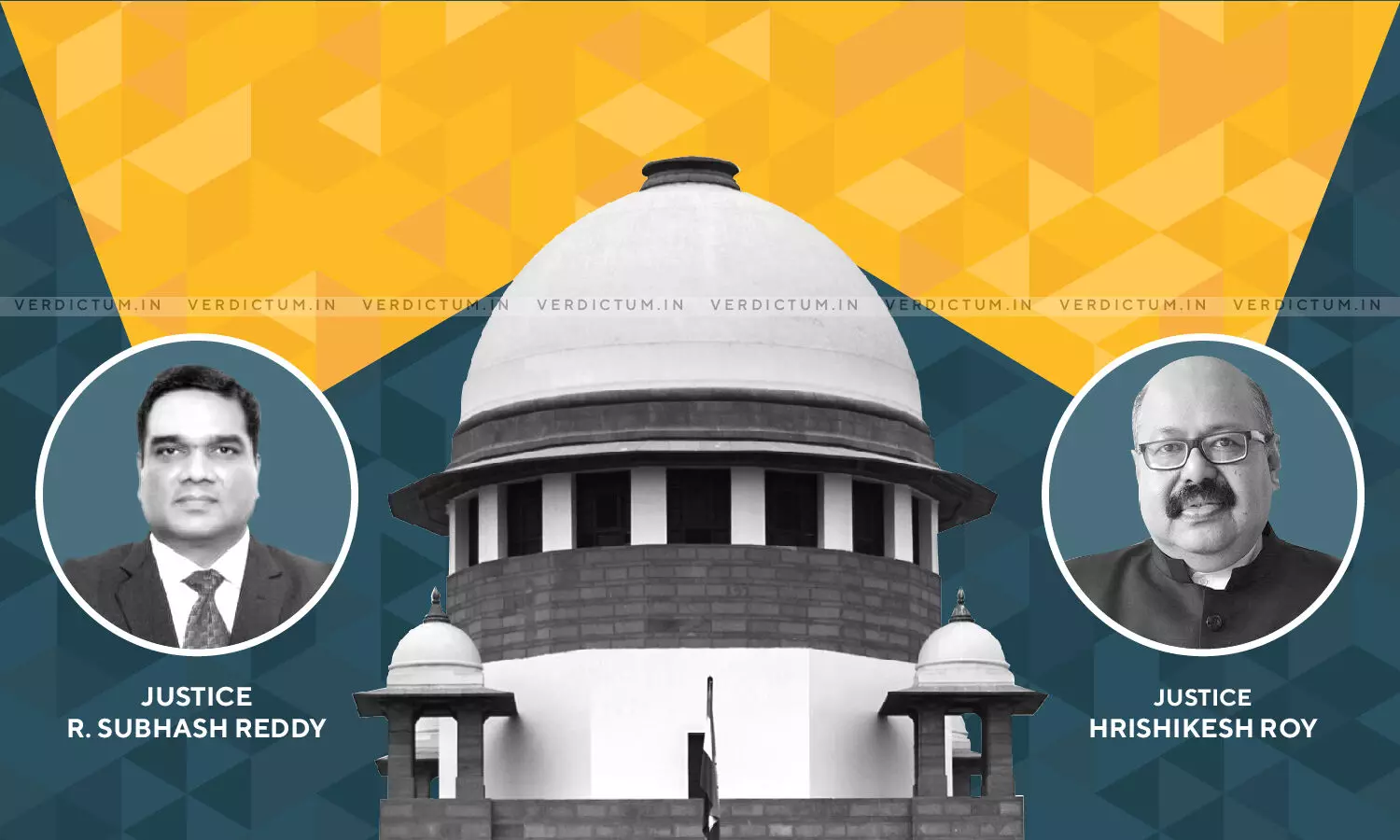
Jurisdiction Of Civil Courts To Try Suits Relating To Land Ceiling Proceedings Under The 1976 Act Is Barred By Implication – Supreme Court
 |
|A two-judge Bench of Justice R. Subhash Reddy and Justice Hrishikesh Roy has held that the jurisdiction of Civil Courts under the Urban Land (Ceiling and Regulation) Act, 1976 (ULC Act) to try land-related suits which is a subject matter of ceiling proceedings stands excluded by implication.
The Court also held, "Civil court cannot declare, orders passed by the authorities under the ULC Act, as illegal or non est. More so, when such orders have become final, no declaration could have been granted by the civil court."
Additional Advocate General Mr. Saurabh Mishra appeared for the Appellants while Advocate Mrs. Pragati Neekhra appeared for the Respondent during the proceedings before the Court.
An appeal was preferred by the State of MP assailing the judgment passed by the High Court which had dismissed the second appeal filed by the Appellant and upheld the decision of the Trial Court which had decreed the suit on the ground that the possession of the land was not taken by the Appellant before the ULC Act was repealed in 1999. The Trial Court had also granted an injunction restraining the Appellant from interfering with the possession of the Respondent.
In this case, after following the procedure as required under the ULC Act Appellant had taken possession of the surplus land to the extent as declared by the competent authority. The surplus land was used for the construction of houses for swell dwellers by the Appellant. As per the Appellant, the land was taken prior to coming into force of the Urban Land Ceiling Repeal Act, 1999.
The Respondent had filed suit for declaration and permanent injunction and claimed himself to be the sole heir and adopted son of Late Padam Singh. He contended that the possession of the surplus land was not taken by the Appellant and the land was under his possession.
The Appellant contended before the Supreme Court that the Respondent did not question the orders passed by the competent authority declaring the land as surplus land, it was not open for him to seek declaration.
It was further argued that not only the possession of the subject land was taken and recorded in the name of the Government but the same was allotted to Bhopal Development Authority for the construction of houses for the poor and a substantial amount was spent for the same.
While the Respondent contended that when the original declarant died before possession was taken without issuing any fresh notice to his legal heir, it was not open for the Appellant authorities to take possession consequent to the orders passed under the ULC Act.
Further, Ms. Neekhra argued that the Court may mould the relief by issuing appropriate directions.
The Apex Court, after considering the contentions of the parties at length, noted that the Respondent who claimed to be the legal heir of the original declarant was also a signatory as a witness to the panchnama for taking over the possession by the Appellant.
"A belated attempt was made by filing the present suit by the respondent without even questioning the orders passed by the competent authority under the Act, declaring the land in question as a surplus land," the Court opined.
Further, the Bench observed, "The trial court as well as appellate court fell in error in recording a finding that possession was not taken, inspite of taking possession by conducting panchnama for which respondent is a signatory."
The Court also held that anybody claiming possession when the physical possession was already taken has to be treated as a trespasser and has no right to possess the land which vests with the State free from all encumbrances, as held in the case of Indore Development Authority v. Manoharlal and others.
Additionally, the Bench held, It was evident from the report of the District Court that not only the physical possession of the land was taken by the Appellant but it was utilized for a public purpose.
"When the orders passed by the competent authority and consequential notifications issued under Section 10(1) and 10(3) of the ULC Act have become final, it was not open for the respondent to file a suit seeking declaration, as prayed for," the Court asserted.
Furthermore, the Bench added, "Jurisdiction of the civil courts is barred by necessary implication, trial court fell in error in entertaining the suit, as filed by the respondent and even the first appellate court and second appellate court have not considered the various grounds raised by the appellant in proper perspective."
The Court while rejecting the contention of the Respondent that the Court may mould the relief, held, "It is trite principle that where the suit is filed with particular pleadings and reliefs, it is to be considered with reference to pleadings on record and the reliefs claimed in the suit only."
In the light of these observations, the Court allowed the appeal and set aside the impugned judgment of the High Court, and dismissed the suit filed by the Respondent before the XII Civil Judge, Class-II, Bhopal.
Click here to read/download the Judgment